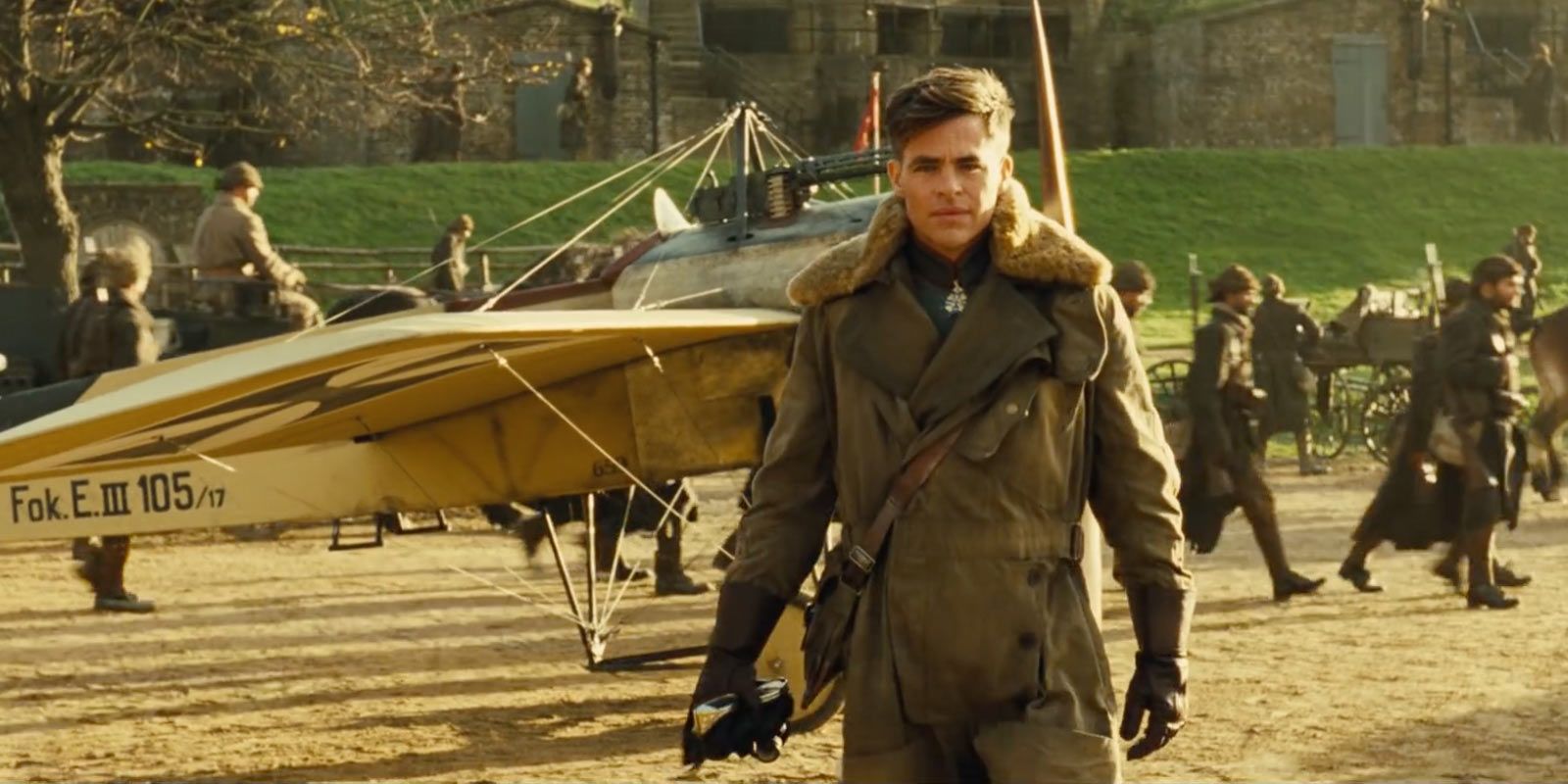"Wonder Woman" attempts a high degree of difficulty from its very premise: Along with being a superhero movie, Warner Bros.' upcoming DC Comics-based feature is also a period piece and a war film. But even though the movie's set in the midst of World War I, director Patty Jenkins wants you to know that it's what happens, not when it happens, that truly matters.
"The truth is, with any of these superhero stories, it doesn't really matter," Jenkins told press including CBR at an event in London last week. "It's not about World War I. It's about a god -- a superhero/Amazon -- coming to man's world and viewing mankind."
RELATED: Wonder Woman: 'No Mandate on Tone,' Says Director
While Jenkins hopes the story of "Wonder Woman" is universal beyond its setting, she also said she appreciates telling a story in World War I -- both for the creative possibilities and the fact that audiences typically know relatively little about the century-old war, compared to the much more heavily pop culture-mined World War II.
"I almost very quickly loved it," Jenkins said. "We've seen World War II so much. There are a lot of misunderstandings at play in World War I. The great thing is, it was not clear what's going on. And that's great for her journey."
In the movie, US fighter pilot Steve Trevor (Chris Pine, pictured above) washes ashore on Themyscira, and tells Diana about the great war unfolding in "man's world" -- spurring her into action and ready to take on what World War I has to offer. In a particularly engaging scene shown to press, Wonder Woman boldly resists the hail of gunfire (thanks to her shield and bulletproof bracelets) to traverse no man's land, helping Trevor and his fellow soldiers.
The World War I setting is the main timeline of the movie, though there is a framing sequence set in the present day, which is where Gal Gadot's Wonder Woman was originally depicted, in 2016's "Batman v Superman: Dawn of Justice." While Wonder Woman is getting used to her new surroundings -- and dealing with the rampant sexism of the era -- she finds plenty of worthwhile discoveries in the war itself, along with some good arguments for pacifism.
"It's the first mechanized war," Jenkins said. "Mankind was changing their belief system of what they were willing to do and what they weren't. The big and most interesting thing about World War I was how there'd been cavalry, and that was what you were proud of -- be there, you're fighting, you're on your horse. Now, you're just bombing people. And that's what her observation is -- 'You're just shooting? You don't know who you're killing, you don't know what's going on? Amazing.'"
Of course, any World War I in which Princess Diana of Themyscira is a participant is a lot different than the one that actually went down from 1914 to 1918 -- so Jenkins was aware of the need for balance between the real and fictional worlds.
"That was my obsession, was tone," Jenkins told reporters. "Coming in I was like, 'OK, we have to be so careful that it doesn't look like a BBC documentary, and so it doesn't look silly that somebody has a superhero costume on.' We have to hit exactly that pocket."
"It was fun in that way, to do it about a period of time that people don't know, and to do it to a period of time where it was like that," Jenkins added. "Nobody can do this. You cannot cross No Man's Land. 'She can block bullets -- wait a minute!'"
"Wonder Woman" is scheduled for release on June 2.

